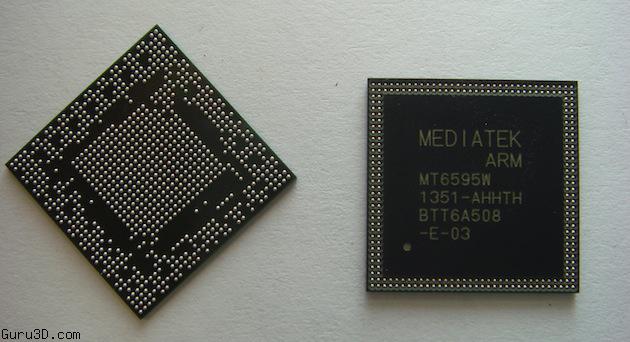MediaTek is about to release the MT6595 which is an eight-core processor nased on ARM Cortex-A17 and A7. These SoCs feature four A17 cores clocked at 2.2GHz to 2.5GHz, four A7 cores clocked at 1.7GHz, and Rogue PowerVR Series6 graphics. The MT6595 claims to be the first octa-core LTE SoC with integrated H.265 Ultra HD Codec, allowing 4K2K video recording and playback. The first phones based on this chipset are expected in the second half of this year.
As an aside, the A17 cores come with a 60 percent improvement in performance over the current-gen A9s, and are primarily designed to make midrange smartphones and tablets even faster. That said, MediaTek tells us that its new chips, known as the MT6595, are actually meant to be featured in premium devices and will square off directly against Qualcomm's Snapdragon 800 and 805.
And it's certainly got a few noteworthy features: first, the chip will use ARM's big.LITTLE architecture and Heterogeneous Multi-Processing, which means you can use all eight cores for the most intense tasks, or you can use just one or two at a time for incredibly basic activities. The company claims that this chip will be faster and more power efficient than the octa-core Exynos options, which feature four A15 cores and four A7s at lower frequencies.
Additionally, the MT6595 claims to be the first octa-core LTE system-on-chip with an H.265 Ultra HD Codec built-in to the platform, which offers 4K2K video recording and playback capabilities. In much the same way that most manufacturers don't enable all of a chip's features, however, it'll be up to each individual company to add it in. The chips will begin sampling to phone makers and carriers in the first half of this year, and it's expected to arrive in products during the second half. And while it should find its way into smartphones and tablets around the world, MediaTek wants the MT6595 to enjoy a huge presence in the US.
MediaTek Uncovers Octa Core Cortex-A17 based chip


